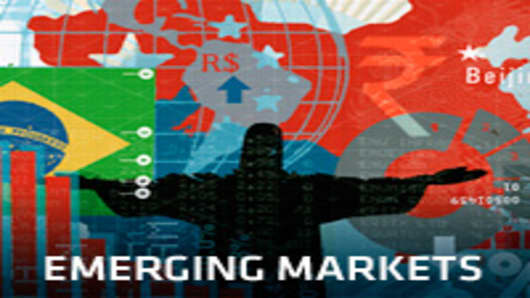Fearful of Europe’s enduring sovereign debt crisis and a potential hard landing in China, investors have flocked to the relatively safety of the U.S. stock market this year.
But some investors now see an opportunity to return to riskier emerging markets, which still offer solid economic growth and more appealing valuations.
With emerging market valuations more attractive, Kelvin Tay, chief investment officer for Southern Asia-Pacific at UBS Wealth Management, told CNBCit may now be time to use some this year’s U.S. stock gains to fund new investments in emerging market stocks.
“The risk-return reward of investing in emerging markets works very much in your favor as opposed to investing in some of the U.S. stocks that have gone up spectacularly well this year,” Tay said.
The S&P 500 is up nearly 12 percent this year, while the MSCI Emerging Markets Index has gained just 3 percent in dollar terms.
Tay sees compelling value in Brazil, China and Russia. “You have a lot of big stocks in Russia that are trading at 2 or 3 times P/E,” Tay noted. “That’s something that hasn’t happened in a long time.” (Read More:Russia - the Best Pick Among Emerging Market Stocks?)
But the days of simply buying a broad emerging market country index fund(learn more) may be over, Laurent Deltour, chairman of Sycamore Asset Management said in interview. Stock picking is now more important.
“In the past, most of the money invested in emerging markets went into trackers,” he said. “We believe now is the time to have local managers – value investors – looking at companies and investing on a long-term basis.”
Although there is still a place for index investing in emerging markets, it should be complemented by having local managers that can pick stocks that will stand out from the broader country stock index, Deltour said.
“I think there will be much more differentiation among emerging markets and emerging market companies,” he noted.
Indeed, looking across the emerging markets this year, country performance has been highly divergent. The MSCI Brazil is down 8.5 percent, China is flat and Russia has gained 1 percent. India has outperformed, climbing 9 percent. (Read More:Enthusiasm for Indian Stocks Intact Despite Poor Growth.)
Deltour doesn’t favor any one of these country markets over the others. The performance of individual stocks in each of these markets matters more, he said.
Tay agrees, suggesting the best way to invest in Russia is through a mutual fund (learn more) and not an index fund. “A fund will represent your interests much better,” he said.
(Read More:Investing in Europe's Fastest-Growing Economy.)
Taking a more selective approach also should carry over to those global stocks that depend on emerging markets for growth. Luxury brands have been a beneficiary of the growing wealth in emerging markets like China. But as David Riedel, president of Riedel Research Group, told CNBC, they also still have significant European exposure.
Although some luxury brands, like an LVMH and Hermes , should do well regardless of what happens in China, it’s the brands with more mass-market appeal that investors need to be wary of. (Read More: Hermes, Ferragamo Sales Show No Luxury Slowdown.)
“There's always going to be this group of people that are going to be able to afford anything – yachts and watches and fancy liquors and so on and so forth. What you really need to keep an eye on is the True Religion , Coach and Tiffany . Those kinds of names that have more mass market appeal, but people can choose to not make those purchases.”




